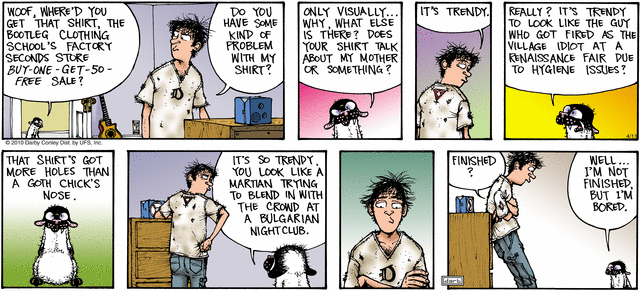A few days ago at the Guardian, David Marsh brought out the stuffed body of George Orwell and propped it up in the pulpit ("Election 2010 – vote for the cliche you hate the most", 4/9/2010):
George Orwell, in his brilliant 1946 essay Politics and the English Language, wrote: "When one watches some tired [political] hack on the platform mechanically repeating the familiar phrases … one often has a curious feeling that one is not watching a live human being but some kind of dummy." He memorably argued that "if thought corrupts language, language can often corrupt thought" and proposed six rules of good writing:
• Never use a metaphor, simile or other figure of speech which you are used to seeing in print.
• Never use a long word where a short one will do.
• If it is possible to cut a word out, always cut it out.
• Never use the passive where you can use the active.
• Never use a foreign phrase, a scientific word, or a jargon word if you can think of an everyday English equivalent.
• Break any of these rules sooner than say anything outright barbarous.
The result was shocking.
Read the rest of this entry »



